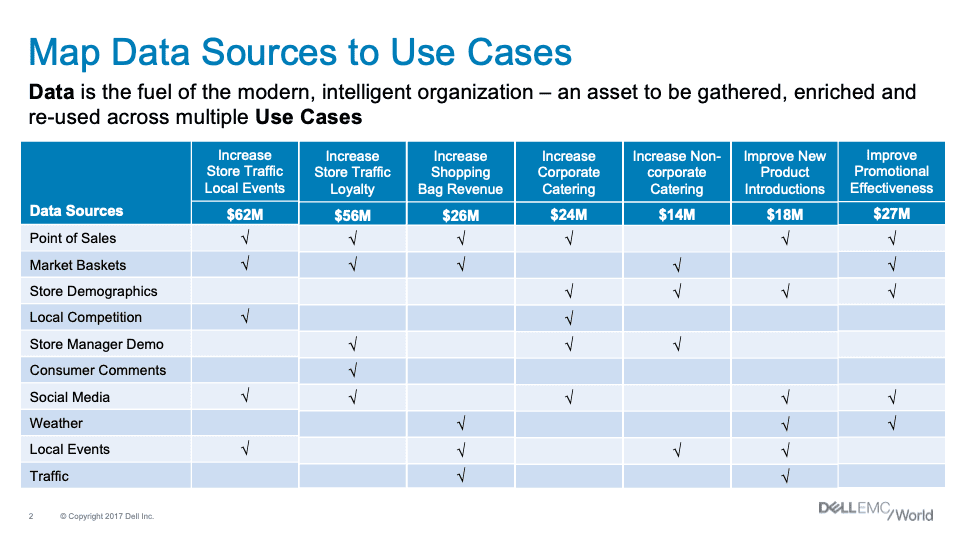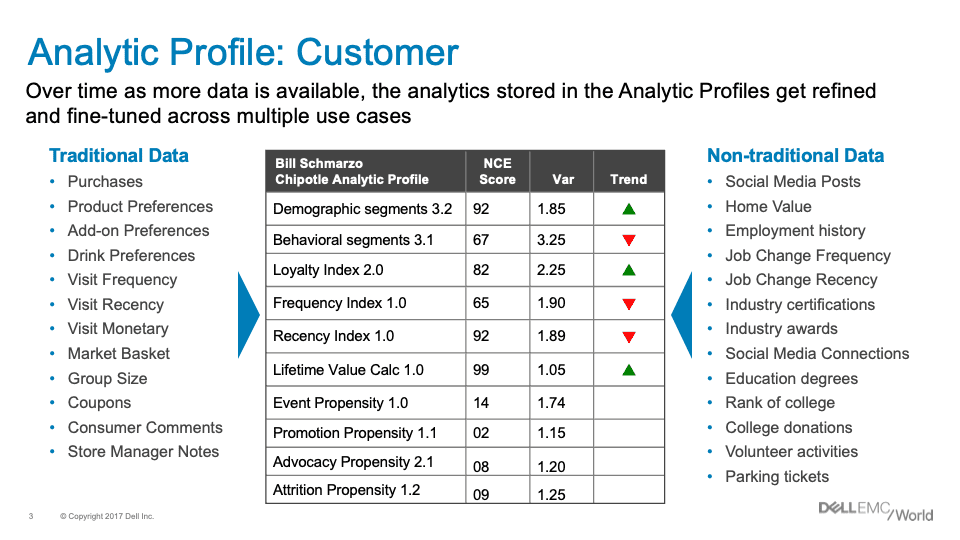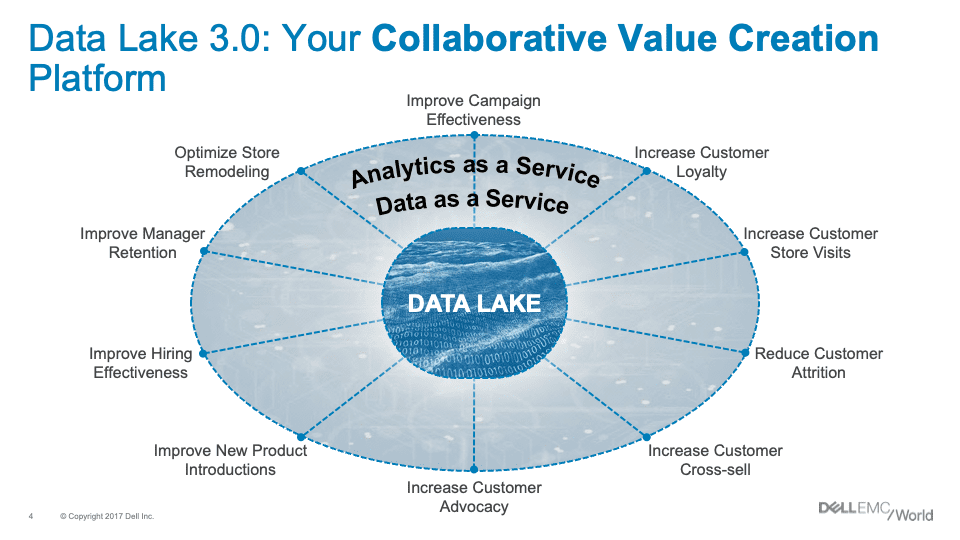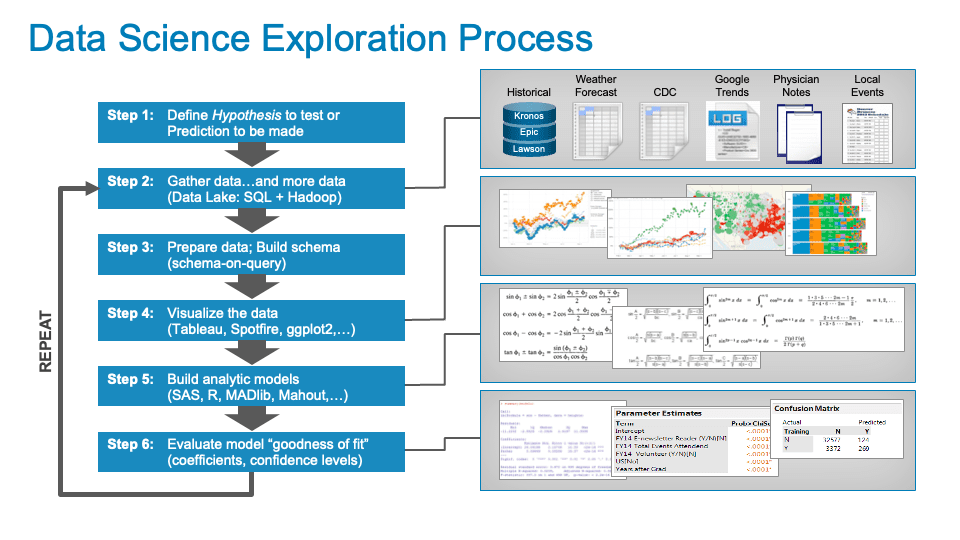“Data Monetization! Data Monetization! Data Monetization!”
Note: This blog was originally posted on December 12, 2017. But given all the recent excitement, I thought it might be time to revisit this blog. The original blog post was corrupted, so I re-posted the same content.
It’s the new mantra of many organizations. But what does “data monetization” really mean, how do you do it, and more importantly, who in the organization owns the job of “data monetization” job?
The Chief Data Officer (CDO) role is a godsend in answering the data monetization challenge. They should be the catalyst in helping organizations to become more effective at leveraging data and analytics to power digital transformation.
However, all is not well in the world of the CDO. Many organizations appoint a CDO with an Information Technology (IT) background – the same background and experience as the Chief Information Officer (CIO). The organization then ends up splitting the existing CIO role between the current CIO and the CDO, giving the CDO the tasks associated with data collection, governance, protection, and access.
Splitting the existing CIO role isn’t sufficient. Instead, the CDO needs a different charter than the CIO, and a key aspect of that charter must be data monetization.
A recent article titled “The CDO and the CIO: Is it a love or hate relationship?” highlighted some of the challenges that the CDO faces in getting the support they need to be successful:
- Only 47 percent of CDOs are given a clear remit or objective when they join an organization.
- Less than half are given the appropriate staffing for their office.
- Only a quarter are given authority over data across departments.
- CDOs are given budget and applicable technology just over half the time.
My personal experience is consistent with these findings. In a blog titled “Chief Data Officer: The True Dean of Big Data?” I stated:
“The CDO doesn’t need an IT background (that’s the CIO’s job). I recommend an economics education because economists have been trained to assign value to abstract concepts and assets. An economist is “an expert who studies the relationship between an organization’s resources and its production or output (value).” And in today’s world, assigning value to complex data sets can be extremely abstract.
A more accurate title for this role might be CDMO – Chief Data Monetization Officer – as their role needs to focus on deriving value from or monetizing the organization’s data assets. This also needs to include determining how much to invest in acquiring additional data sources that would complement the organization’s existing data sources and enhance their analytic results.”
That’s right. Much confusion between the roles, responsibilities, and expectations of the CIO and the CDO could be clarified with a simple title change: Chief Data Monetization Officer. The CDO, or CDMO, would be responsible for monetizing the organization’s data and analytics for managing, refining, sharing, and monetizing the organization’s data and analytic digital assets.
Enter the Chief Data Monetization Officer
The title says it all: the role of the Chief Data Monetization Officer is to lead the organization’s efforts to monetize the organization’s data (and resulting analytics). To accomplish that, the CDMO’s key responsibilities need to include:
Document Business Use Cases. Implement a methodology that identifies, validates, prioritizes, and documents the organization’s key business and operational use cases. The use case documentation should call out the use case financial drivers and the implementation risks.

Figure 1: Document Business or Operational Use Cases
Capture and Re-use Data Assets. Creation of a methodology that facilitates the capture, refinement, enhancement, and sharing of the organization’s data assets

Figure 2: Capture, Catalog, Refine and Share Data Assets
Capture and Re-use Analytic Assets. Embracing a methodology and tools that facilitate the capture, version control, regression testing, and sharing of the organization’s analytic assets

Figure 3: Capture, Catalog, Refine, and Share Analytic Assets
Create Collaborative Value Creation Platform. Management of the data lake that becomes the ultimate repository for the organization’s key digital assets – data and analytics

Figure 4: Data Lake: The Collaborative Value Creation Platform
Analytic Tools and Methodology Management. Ownership of analytic and data management tools, including evaluating, selecting, managing, and retiring the organization’s data management and data science tools. This role also owns developing and adopting a data science exploration and testing process (see Figure 5).

Figure 5: Data Science Exploration Process
Cultivate Data Science Team. Development of the organization’s data engineering and data science capabilities. This includes the hiring, training, growth, management, and retention of the data engineering and data science teams and any partnering strategies. The data science team ultimately powers the organization’s “data monetization” efforts.
Chief Data Monetization Officer: Digital Transformation Catalyst
A few organizations are starting to understand the subtle yet critical differences between a Chief Data Officer (who manages the organization’s data) and a Chief Data Monetization Officer (who is chartered with monetizing the organization’s data). And there are examples from which we can learn more about the nature of the monetization role. For example, most digital media organizations have a Chief Revenue Officer. The Chief Revenue Officer drives better integration and alignment between all revenue-related functions, including marketing, sales, customer support, pricing, and revenue management.
Ultimately, the CDO needs to own the organization’s “Digital Transformation” process, which includes addressing:
- How effective is your organization at leveraging data and analytics to power your business model?
- Do you understand your organization’s key business initiatives and how they benefit from big data?
- Do you have business stakeholders actively participating in setting up your use case roadmap?
- Do you understand the economic value of your data and how that affects your technology and business investments?
- Do you understand how to create a platform that exploits the economic value
of your data?
See the blog “5 Questions that Define Your Digital Transformation” for more details on addressing the five digital transformation questions above.
Data Monetization Call to Action
It’s time to arm the CDO with the tools necessary to drive the organization’s data monetization efforts. This includes:
- The Vision Workshop identifies, validates, and prioritizes the organization’s data monetization efforts. Check out the “Big Data Vision Workshop” site for more details on the Vision Workshop process and key deliverables.
- The data lake is the organization’s “collaborative value creation platform.” Check out the blog “Data Lake Business Model Maturity Index” for more details on the Data Lake and the Elastic Data Platform.
